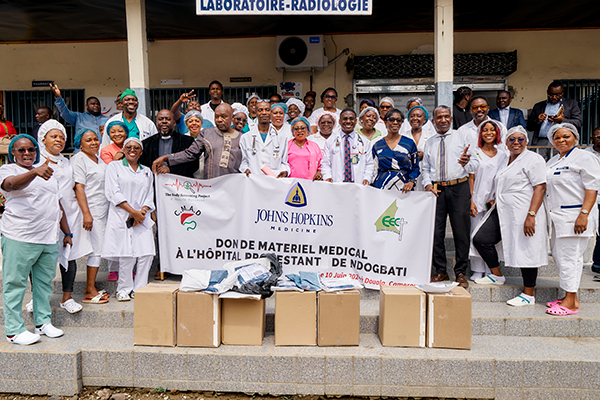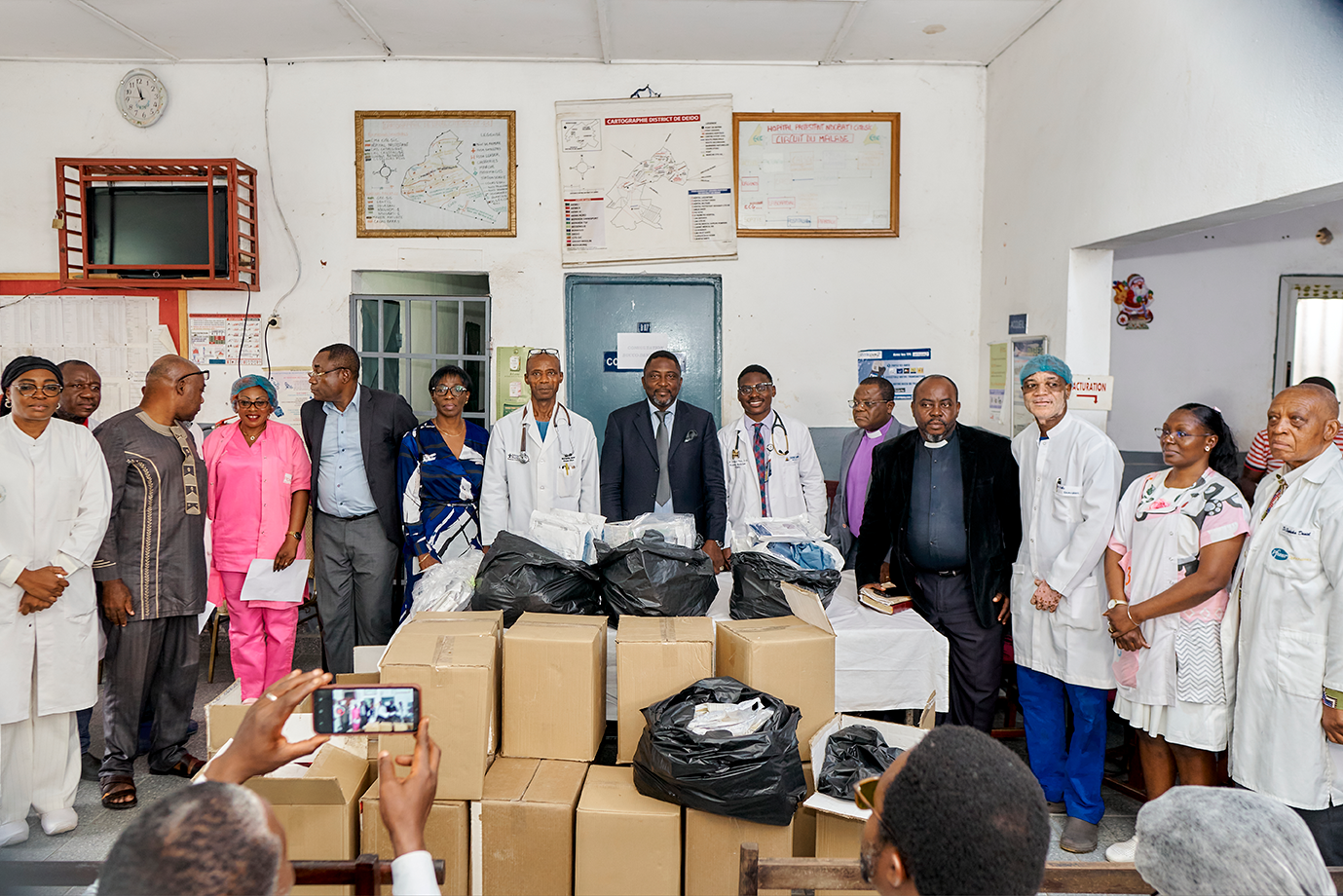By Emmanuel Tito, DO and Ines Kafando, MD
The sterile smell of disinfectant hung heavy in the air, the only familiar comfort in a room otherwise worlds away from my usual hospital experience. Fluorescent lights buzzed overhead, casting a harsh glow on the bare walls of Ndogbati Protestant Hospital in Douala, Cameroon. There were no fancy machines or overflowing cabinets of medications here. Instead, a single stethoscope, a shared treasure, glinted in the doctor's hand as she examined a young boy. A pang of guilt shot through me. Back home, I took for granted the abundance of resources at my fingertips–the latest technology, shelves stocked with every imaginable medicine. Here, the most basic supplies were a precious commodity.
This realization was the spark that ignited a fire within me. It all started with a medical mission trip in 2020, an eye-opening experience that exposed the vast disparities in healthcare across the globe. Returning home, I couldn't shake the image of the doctor's hopeful eyes as she described the daily struggles they faced with limited resources.
Learning from Mistakes: Sending the Right Help
I knew I had to do something; a profound sense of responsibility settled upon me. I knew I couldn’t do this alone. Spreading the word through our nonprofit organization “The Body Screening Project,” SHARE (Supporting Hospitals Abroad with Resources and Equipment) at Johns Hopkins and Johns Hopkins Bayview readily offered to help. Donating expired supplies wasn't the answer. These well-meaning gestures could often create more problems than they solved. Hospitals in these regions lacked the infrastructure–stable electricity, internet access, even clean water–to utilize complex equipment. Donations needed to be targeted and practical.
Building a Better Box
With this newfound knowledge, I took a different approach. I talked to colleagues, friends, even family members. We focused on gathering essential medical supplies–face masks, gowns, IV kits, blood collection tubes, nasal cannula, bandages. These were basic items and simple tools that could make a world of difference in the right hands. We also included some gently-used, but functional, diagnostic equipment that wouldn't rely on a constant power supply.
Boxes started piling up in my living room, overflowing with a newfound purpose. It wasn't just about getting rid of expired supplies; it was about sending a box full of hope.
The day the shipment arrived in Cameroon was unforgettable. The doctors and nurses, their faces etched with relief and gratitude, eagerly sifted through the boxes. It was a beautiful chaos, a testament to the power of even the simplest tools in the right hands. A single bandage could soothe a scrape, a basic IV kit could deliver medications for treatment and a blood pressure cuff could become a symbol of hope.
Lessons Learned, Inspiration Ignited
But the impact wasn't just felt in that underserved hospital in Cameroon. This experience transformed my approach to medicine back home. It instilled a deeper appreciation for the resources I had access to. I found myself using even basic tools more creatively, understanding their true value. Beyond that, it opened my eyes to the global landscape of healthcare. This knowledge made me a more empathetic clinician, better equipped to understand the challenges faced by patients from diverse backgrounds.
Sharing my story with other clinicians sparked a ripple effect. Several are asking to join forces to organize similar drives, focusing on specific needs identified in different resource-limited settings. This is the power of collective action, guided by knowledge and targeted efforts.
How YOU Can Be a Part of the Change
Clinicians across the globe have the potential to make a difference. Here's how you can get involved:
- Organize donation drives: Gather basic medical supplies--think bandages, blood pressure cuffs, thermometers, IV kits, gloves. Focus on practical, long-lasting items that can make a real difference. Research the specific needs of the community you're helping to avoid sending unnecessary donations.
- Volunteer your time: If possible, participate in medical mission trips or volunteer with organizations working to bridge the healthcare gap. Even a short stint can make a lasting impact.
- Spread awareness: Tell your friends, family and colleagues about your experiences. Inspire them to get involved, even in small ways. Every contribution, every shared story, brings us closer to a world where quality healthcare isn't a privilege, but a basic right.
Our world is interconnected. A healthy community in one corner of the globe contributes to a healthier world for everyone. By lending a hand, sharing resources, and fostering a spirit of collaboration, we can create a future where access to quality healthcare isn't a luxury, but a reality for all. That box of supplies might have started small, but it ignited a fire of hope that can spread far and wide. Let's work together to make that hope a reality.



